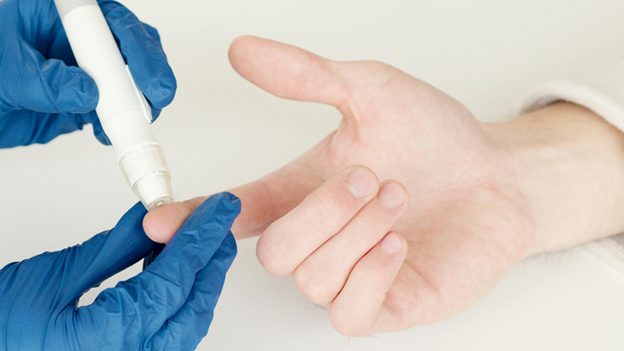What is Type 1 Diabetes?
Type 1 diabetes is quite different from its more common cousin, Type 2. It’s an autoimmune disease. This means the body’s own immune system mistakenly attacks and destroys insulin-producing beta cells. These cells in the pancreas are crucial because they create insulin, the hormone that manages blood sugar.
In type 1 diabetes, insulin production stalls. Without insulin, sugar isn’t regulated well in the blood. This fundamental difference from Type 2, which usually involves insulin resistance, underscores the unique challenges faced by individuals with this condition.
Unveiling the Causes of Type 1 Diabetes
Why does the body turn against itself? Causes of type 1 diabetes include genetic factors and possible environmental triggers. If a parent or sibling has it, the risk increases. Some suggest viruses might initiate the attack on beta cells, but the jury is still out. There are myths about poor diets leading to this, but those are unfounded. It’s crucial to note that having other autoimmune conditions can also raise the risk.
Recognizing the Symptoms of Type 1 Diabetes
Symptoms often appear suddenly but can vary. Here’s what to watch for:
- Frequent urination and increased thirst
- Unintended weight loss
- Fatigue and weakness
Less common symptoms might include blurry vision and slow-healing sores. Since these may escalate quickly, recognizing symptoms is key. Early identification can prevent more serious issues down the road. If you notice any unusual changes, consult a healthcare provider immediately.
Diagnosing Type 1 Diabetes: What to Expect
To confirm type 1 diabetes, doctors check blood sugar levels. Tests like HbA1c, which shows average blood sugar over three months, are common. Catching this early can make a big difference in managing the condition effectively. If symptoms of type 1 diabetes arise, don’t hesitate to see a doctor.
Possible Complications Arising from Untreated Type 1 Diabetes
Ignoring type 1 diabetes can lead to severe consequences. Immediate risks include diabetic ketoacidosis, a life-threatening condition where blood sugar spikes. Over time, unchecked diabetes can cause heart issues and nerve damage. Prevention means managing the condition diligently.
Effective Type 1 Diabetes Treatment
Managing Type 1 diabetes r tequires a multi-pronged approach:
- Insulin therapies: The primary treatment — comes in various forms, from injections to pumps.
- Regular blood sugar monitoring is vital; keeping an eye on those levels provides peace of mind.
- Learn carbohydrate counting. It helps balance insulin injections around food intake.
- Some use adjunctive therapies like pramlintide, which can aid in controlling blood sugar.
- Exciting prospects include disease-modifying drugs like Tzield™, offering hope in altering disease progress.
The combination of these strategies provides individuals with better control and helps maintain overall health.
Leveraging Technology for Better Diabetes Management
Tech advancements promise new ways to manage type 1 diabetes. Artificial pancreas systems, which automate insulin delivery, are rapidly developing. Innovations like refined insulin types mean more tailored solutions in the future.
Embracing Life with Type 1 Diabetes
A healthy life with diabetes goes beyond medicine. Support networks, be they family, friends, or communities, play an invaluable role. Adjusting to a diabetes-friendly lifestyle includes diet, exercise, and mindfulness. Also, managing the psychological impact is vital. Feeling stressed or overwhelmed? You’re not alone. Many find strength in connecting with others facing similar challenges.
Conclusion: The Road Ahead with Type 1 Diabetes
We’ve unpacked the essentials of type 1 diabetes today. From understanding its cause and identifying symptoms, to exploring effective treatments and living well despite it. Awareness and education empower individuals and communities alike. If you or a loved one live with this condition, embrace the tools and knowledge available. Be proactive, stay informed, and tackle challenges head-on. The path may not always be easy, but with the right support, it’s certainly achievable.
Ready to take charge of your health? Discover the latest tips and resources tailored for you by signing up for our newsletter, brimming with insights into managing type 1 diabetes and living your best life. For expert guidance and personalized care, reach out to Kamala Maternity and General Hospital. They’re dedicated to helping you manage your health effectively. Take the first step towards a healthier you by connecting with Kamala Maternity and General Hospital today.



